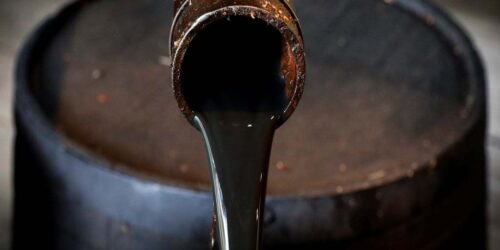The Petroleum Division has shared information on deemed duty of refineries with the Cabinet Committee on Energy (CCoE) aimed at updating the forum on this matter due to some controversies.
“The summary on deemed duty was placed on CCoE agenda for information and about past upgradation. No decision was sought,” said Minister for Energy, Hammad Azhar while replying to a query sent by Business Recorder on Friday.
The summary presented before the CCOE on December 2, 2021, on deemed duty says that refineries have spent Rs 199 billion against collection on up-gradation during 2002-2020.
According to Petroleum Division, the protection regime in the refining sector has been in place since 1960s which has taken many forms concomitant to the emerging challenges of different times. The tariff protection formula (deemed duty) introduced in 2002 for the existing refineries was aimed at ensuring their operational sustainability.
In order to ensure supply of quality products to the consumers, Government has been constantly improving the desired specifications of refinery products to remain aligned with Global Refinery market as well as international quality benchmarks. Improvement in product standards has led to the up-gradation of existing plants to remain commercially viable against the headwinds of import of oil products from international market.
Local refineries tell govt they’re heading towards ‘forced shutdown’
Following is a brief chronology of improvement of product specifications by local refineries in Pakistan: (i) in 2000, enhancement of motor gasoline Research Octane Number (RON) from 80 to 87 RON; (ii) 2002, elimination of lead from Motor Gasoline; and (iii) 2016, enhancement of Motor Gasoline RON from 87 to 92 (Euro-Il). The next target is Euro-V Motor Gasoline which will be achieved in 2026.
Petroleum Division stated that prior to 2012 sales of diesel @ 1 per cent Sulphur content (10,000 ppm) was replaced with 0.5 per cent Sulphur content (5,000 ppm). In 2016, diesel was shifted to Euro-II@ 0.05 per cent Sulphur content (500 ppm) which will be 0.001 per cent in 2026 when Euro-V HSD will be introduced.
Resultantly, existing five refineries have constantly been upgrading their installed configurations in compliance with new specifications and to compete with international suppliers in line with the tariff protection formula given in Budget speech on Finance Bill 2002 whereby refineries were required to operate and compete in the market on their own (without precondition for up-gradation).
As part of the restructuring and de-regulation of the oil sector the Ministry of Petroleum has decided to abolish the minimum 10% rate of return guarantee for the National Refinery Limited, Pakistan Refinery Limited and Attock Refinery Limited and allow them to compete in the market through tariff protection formula.
For this purpose, import duty at 10% ad valorem on import of HSD and 5% ad valorem plus 1% surcharge on import of kerosene oil, light diesel oil and JP-4 is being proposed. However, excise duty on these products is being abolished and petroleum development levy is being reduced to minimize the impact of this measure on the retail prices.
While conveying the formula to the refineries, the refineries were issued guidelines by the Petroleum Division on June 25, 2002 that 50% of the net profit after tax will be diverted to a special reserve account to offset against any future loss or make investment for expansion or up-gradation of refinery.
According to Petroleum Division, the intent of 2002 tariff protection policy was to provide a reasonable margin to refineries so that refineries could primarily operate their normal business while encouraging them to manage losses and up-grade refineries with the provision of a special reserve account. Accordingly, refineries have run the operation of refineries on their own and also up-graded the same during 2002-2020. The focus of the proposed Refining Policy 2021, is also to up-grade and enhance the production/quality of the local fuel so as to minimize dependency on import.
Petroleum Division, in its summary said that in addition refineries not only made investments and up-graded the refineries in the past with the provision of special reserve account but also arranged funds out of their own resources and borrowings.





